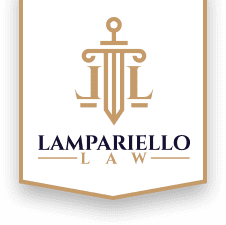In Florida, mediation plays a crucial role in the resolution of personal injury cases, offering parties an opportunity to negotiate and reach mutually acceptable settlements outside of court. Familiarizing oneself with this process can be beneficial for those navigating the complexities of personal injury claims.
What is Mediation?
Mediation is a voluntary, confidential process where a neutral third party, known as a mediator, facilitates communication and negotiation between parties involved in a dispute. The goal is to help parties reach a mutually agreeable resolution without the need for litigation.
Benefits of Mediation in Personal Injury Cases
Mediation offers several advantages in the context of personal injury disputes:
- Control Over Outcome: Parties have more control over the final settlement terms compared to decisions imposed by a court.
- Time and Cost Savings: Mediation is often quicker and less expensive than going to trial, reducing legal fees and court expenses.
- Preservation of Relationships: It can help preserve relationships, particularly in cases involving ongoing interactions or business relationships.
- Confidentiality: Discussions and offers made during mediation are confidential, promoting open communication without fear of admissions being used against parties in court.
Process of Mediation
The mediation process typically includes the following steps:
- Opening Statements: Each party presents their perspective on the issues and goals for mediation.
- Joint Discussion: The mediator facilitates a structured discussion where parties can express their concerns and explore potential solutions.
- Private Sessions: The mediator may conduct private sessions, known as caucuses, with each party to discuss strengths and weaknesses of their case and explore settlement options.
- Negotiation and Agreement: If parties reach a settlement agreement, it is usually drafted and signed, outlining the terms agreed upon.
Legal Considerations
While mediation is voluntary, courts in Florida may encourage or require parties to attempt mediation before proceeding to trial. Key legal considerations include:
- Enforceability: Settlement agreements reached through mediation are binding once signed by all parties.
- Court Approval: Some settlements may require court approval, especially in cases involving minors or certain types of claims.
Role of Attorneys in Mediation
Personal injury attorneys play a crucial role in mediation by:
- Preparing Clients: Educating clients about the mediation process and what to expect.
- Advocating: Representing their clients’ interests during negotiations, ensuring they receive fair compensation for their injuries and losses.
- Facilitating Communication: Working with the mediator and opposing counsel to explore settlement options that meet their clients’ needs.
Conclusion
Mediation offers a constructive alternative to litigation in resolving personal injury disputes in Florida. Its benefits include efficiency, cost-effectiveness, and the opportunity for parties to maintain control over the outcome. Understanding the mediation process and having skilled legal representation can significantly increase the likelihood of achieving a favorable settlement.
For personalized guidance on navigating mediation in your personal injury case, consult with an experienced personal injury attorney who can provide tailored advice and advocacy throughout the mediation process.
